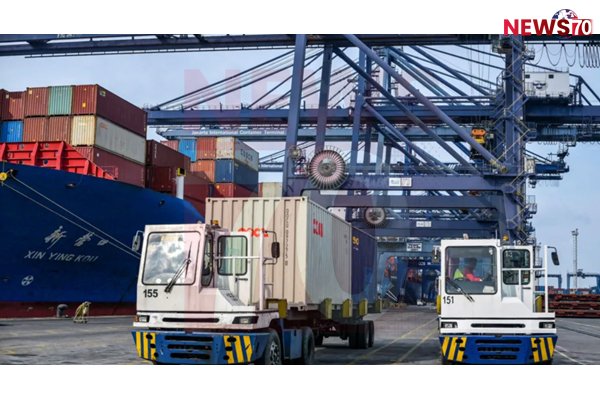U.S. President Donald Trump and Indonesian President Prabowo Subianto have finalized a tariff agreement reducing U.S. tariffs on Indonesian goods from 32% to 19%, while granting American companies broader market access. Under the pact, Indonesia will also lower duties on U.S. agricultural and manufactured exports and commit to purchasing $15 billion in U.S. energy, $4.5 billion in farm products, and 50 Boeing jets. Indonesia, which exported $28 billion to the U.S. last year, views the deal as mutually beneficial, though analysts suggest its main impact may be political. The agreement follows Trump’s renewed tariff threats against multiple countries and adds to trade deals previously signed with the UK, China, and Vietnam.
U.S. President Donald Trump has finalized a new tariff agreement, this time with Indonesia.
U.S. President Donald Trump and Indonesian President Prabowo Subianto have reached a tariff agreement that will see tariffs on Indonesian goods reduced from 32% to 19%, in exchange for expanded market access for American companies.
Trump described the deal as a win for U.S. businesses, saying it grants "full access" for American firms into Indonesia. Speaking from Jakarta, Prabowo called the agreement a "new era of mutual benefit" with Washington, noting that Trump was “quite a tough negotiator.”
The agreement follows a wave of tariff threats issued by the White House earlier this year. After pausing his most aggressive tariff plans, Trump recently resumed his pressure campaign, warning dozens of countries — including top trading partners like the EU, Canada, Japan, and South Korea — of impending tariffs set to begin on August 1.
Indonesia, one of the nations that received a warning letter, was reportedly caught off guard given ongoing talks. However, Trump said he scaled back the tariff rate following a phone conversation with Prabowo.
As part of the pact, Indonesia will lower tariffs on a range of U.S. exports — particularly agricultural and manufactured goods — which the U.S. had criticized as excessively high.
“They’ll pay 19%, and we’ll pay nothing,” Trump said. “We’ll have full access into Indonesia.”
Indonesia also agreed to purchase $15 billion in U.S. energy, $4.5 billion in American agricultural products, and 50 Boeing jets, Trump added on social media. Those figures, however, are slightly below expectations from a draft deal earlier reported by Reuters.
Prabowo did not confirm all specifics but acknowledged that Indonesia would be buying American planes and continuing to work with both Boeing and Airbus. He added that the country still relies on imports for fuel, gas, wheat, and soybeans, and negotiations focused on finding “common ground.”
While he didn’t explicitly confirm zero tariffs for U.S. goods, Prabowo said all terms had been negotiated with Indonesia’s interests — especially job protection — in mind.
Indonesia, which sent about $28 billion in exports to the U.S. last year (mainly apparel, footwear, and palm oil), is one of America's top 25 trading partners.
Economist Stephen Marks of Pomona College noted that the deal’s significance for Indonesia may be more political than economic. “The U.S. is an important market for Indonesia, but not as dominant as some of its Asian neighbors,” he said.
So far, the Biden administration — continuing Trump-era trade pressures — has only finalized agreements with the UK, China, Vietnam, and now Indonesia. However, key details in many of those deals remain unresolved, and U.S. tariffs often remain in place.
Everett Eissenstat, a former Trump economic adviser and now a partner at Squire Patton Boggs, said more deals are likely in the coming weeks, though many countries appear to be lowering their expectations. He cited comments by Canadian Prime Minister Mark Carney, who recently hinted at accepting tariffs once thought to be off the table.
“The tone is shifting,” Eissenstat said. “Right now, a deal — even an imperfect one — is better than no deal.”
